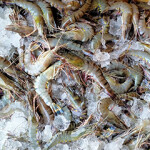Huffman, Graves get AIS provision included in Coast Guard bill

Two U.S. representatives who have worked across the aisle to combat illegal fishing practices succeeded on Wednesday, 2 March, in amending a Coast Guard funding bill to include a requirement for more fishing vessels to install tracking systems.
U.S. Reps. Jared Huffman (D-California) and Garret Graves (R-Louisiana) say requiring boats that are at least 65 feet in length to have automatic identification systems (AIS) technology on board. A grant program that includes USD 5 million (EUR 4.5 million) would be made available to help boat owners purchase the equipment.
The amendment was added during a House Transportation and Infrastructure Committee meeting on Tuesday, 1 March.
“It’s a tool that will give the Coast Guard more efficiency in combatting illegal fishing activities and better allow our country to leverage foreign actors to address something that’s a real problem: IUU fishing, or illegal, unreported, and unauthorized fishing,” Huffman said during the meeting.
Critics have concerns about implementing such systems on fishing boats. They say that it duplicates what other systems may provide, and AIS may also give competitors information about a vessel’s location.
However, Graves said that if the U.S. is serious about cracking down on illegal seafood entering the country, then this is a step that’s necessary to take – especially given the size of the country’s exclusive economic zone.
“As I recall, it’s well over four million square miles of territory, and without the ability to know that vessels are there, we can’t enforce it,” Graves said in the hearing. “We don’t have the capacity to monitor satellites that do aerial reconnaissance missions, and so this does complement that. And now I think it’s important for us to all note that there has been reports of vessels that are misreporting their station, misreporting their location, and they’re doing it to illegally fish and illegally circumvent sanctions and things along those lines, so I don’t think that this amendment is going to solve all the problems, but I think it’s a huge step in the right direction.”
It's believed that as much as 56 billion pounds of seafood caught globally is done so using illegal means. That can include fishing outside of domestic waters, ignoring catch limits, or using illegal labor practices in catching or processing fish.
Previously, Huffman and Graves teamed up to have their illegal fishing and forced labor bill included in the America COMPETES Act, which passed out of the House last month.
“Here in America, of course, we have some of the most-sustainable fisheries in the world,” Huffman said. “But illegal, unreported, and unregulated fishing is a serious, rampant problem internationally, and people may not realize this, but we’re the top importer of seafood in the world. So, this is our problem.”
Photo courtesy of Orchidflower/Shutterstock






Share